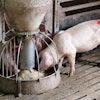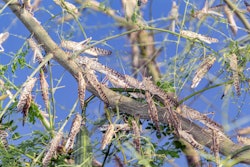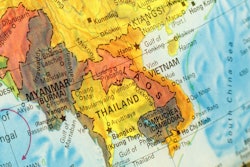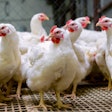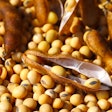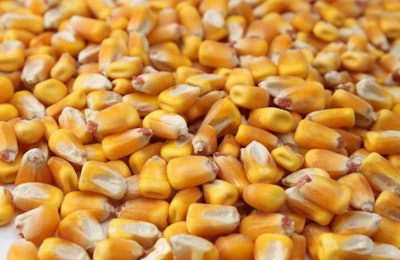
To discourage imports of corn, and to protect foreign currency reserves, Nigeria’s central bank has called a halt to the processing of importation paperwork.
Nigeria may be among the largest producers of corn in Africa, but the state has also been heavily reliant on imports. However, this situation looks likely to change, as the central bank has placed heavy restrictions on imports of the grain.
Last week, the Central Bank of Nigeria (CBN) announced a ban on authorized dealers from accessing foreign exchange for the purpose of corn imports. According to Ventures Africa, grain traders can continue their activities — if they use alternative markets to carry out their transactions.
Supporting the action is CBN’s strategy to discourage corn imports, reported Naira Metrics.
According to the institution, benefits will be felt by increasing local corn production, and supporting the recovery of the economy, which has been hit by the coronavirus (COVID-19) pandemic. With growing pressure on the local currency, the naira (NGN), the CBN is also aiming to keep demand for the U.S. dollar as low as possible. Furthermore, it says, reducing imports will help boost job creation, and support the livelihoods of the rural population.
Instead of financing imports, the CBN is turning to support local corn growers, reports The Cable. Over the next 18 months, the bank’s target for domestic production is 12.5 million metric tons (mmt) from a cultivated area of 2.5 million hectares. Already, the target area for this year’s wet season sowing – 250,000 hectares —has been met.
Corn: a Nigerian staple
Widely used as a staple food as well as a key feed ingredient, corn is among the commodities and products for which Nigeria relies on imports.
In 2019, the West African state imported cereal grains (including corn) to a value of US$1.3 billion. According to World’s Top Exports, this category was No. 9 in Nigeria’s top imports for the year in terms of value.
Trends in Nigeria’s corn harvests
Corn is the most important grain crop in sub-Saharan Africa, according to the International Institute of Tropical Agriculture (IITA). According to this source, Nigeria is the continent’s top corn producer, with an annual harvest of 33 mmt. However, irregular rainfall can led to shortages, and Africa imports around 28% of its requirements each year.
Other sources put Nigerian production considerably lower. Dropping from a peak of almost 11.55 mmt in 2016, national output had fallen to around 10.16 mmt in 2018, according to FAOstat, the statistics arm of the United Nation’s Food and Agriculture Organization (FAO). This was achieved from an area of 4.85 million hectares.
With production in 2018-19 and 2019-20 of 11 mmt, Nigeria is Africa’s second largest producer of corn, according to the U.S. Department of Agriculture’s Foreign Agricultural Service. In its latest World Agricultural Production report, it identifies South Africa as the continent’s leading producer of this commodity with an annual output of 16.25 mmt.
Citing data from IITA, The Cable reports that Nigeria imported 400,000 metric tons (mt) of corn in 2018 to supplement domestic production of an estimated 10.7 mmt. In the next year, a similar volume was imported despite an increase in the local harvest to 10.5 mmt.
In Nigeria, animal feed production accounts for around 60% of total corn use. Household consumption takes a further 10-15%, and the balance goes into manufactured foods.
Rising corn prices
Prices of corn are well above the level of last year across the region, according to the FAO’s regional food price reports for West Africa for the month of May.
FAO attributes the increase across the area to the impacts of COVID-19-related restrictions that disrupted agricultural and trading activities, as well as strong domestic purchasing. In Nigeria, the situation has been further exacerbated by conflict in the north of the country, border closures to curb smuggling, and sharp depreciation of the naira. Inflation is now at its highest level for two years, reports FAO.
With wholesale prices at NGN11,000-14,000 per 100 kg, corn was up to 30% more expensive in Nigeria during the month of May than 12 months previously. For other African states in this study, the difference was no more than 10%.
Sharp rises in the prices of corn and other feed ingredients have been blamed for the recent near-collapse of the Nigerian poultry sector. To ease the situation, farmers have called for the release of grain reserves.
In the north of the country, the authorities have made new land available for the cultivation of fodder crops for cattle and other livestock.

